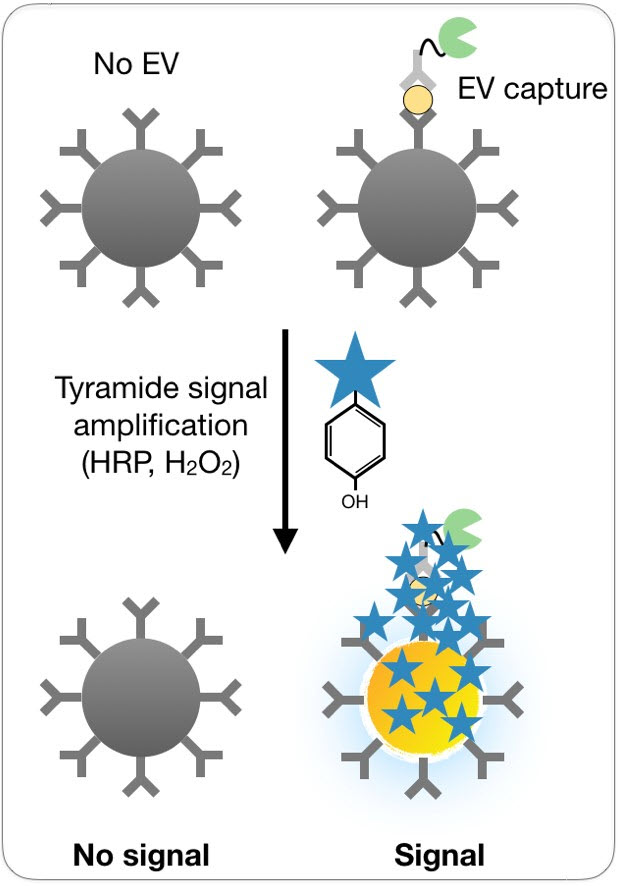In a given year, more than 50,000 Americans are diagnosed with pancreatic cancer. This aggressive disease often goes undetected until it has advanced to a point past viable treatment options. Early detection of pancreatic cancer could provide an opportunity for early intervention, when the disease is most likely to respond to treatment. Extracellular vesicles (EV) are small (50-200nm) particles that are shed from all cells into the circulation and are one of the most promising sources of biomarkers where pancreatic lesions are concerned. In patients with pancreatic cancer, EVs are shed into the blood at higher rates from cancer cells than normal cells. The aim of this project is to evaluate new early detection biomarkers on EVs for early pancreatic cancer detection. Candidate biomarkers will be assayed via a novel digital EV screening technology (DEST). DEST is a digital ELISA assay that will be optimized for different markers for high throughput analysis of EV proteins captured on magnetic beads. Candidate protein markers will be tested in cell line derived EV, followed by clinical assessment in patient-derived EV. A simple blood test to detect pancreatic cancer early would be groundbreaking in the treatment of this aggressive disease.




